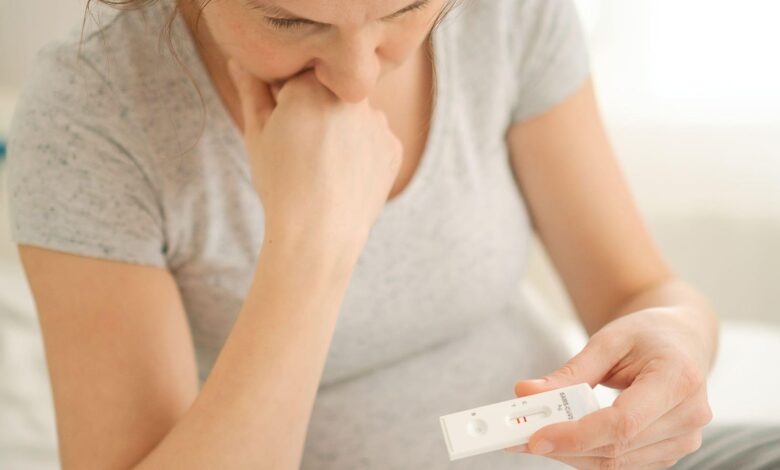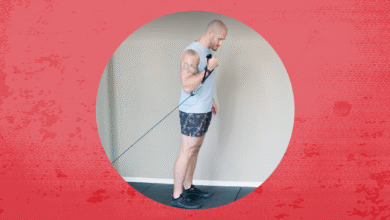Maternal Vaccination Lowers Odds of Respiratory Distress in COVID-Exposed Infants

— Preterm, COVID-exposed infants with respiratory distress had marked inflammatory responses
by
Katherine Kahn, Staff Writer, MedPage Today
January 24, 2024
Infants born to unvaccinated mothers who had COVID-19 during pregnancy were at high risk for developing neonatal respiratory distress, the longitudinal, cohort COMP study found.
The odds of developing respiratory distress were threefold higher (OR 3.06, 95% CI 1.08-10.21) in infants born to unvaccinated mothers diagnosed with COVID-19 while pregnant compared with COVID-exposed infants born to COVID-vaccinated mothers, Mary Catherine Cambou, MD, of the University of California Los Angeles (UCLA), and colleagues reported in Nature Communications.
“This was not something we were expecting to see, as none of the babies were diagnosed with COVID-19 themselves,” co-author Karin Nielsen-Saines, MD, also from UCLA, told MedPage Today in an email. “We also noted that respiratory distress was not transient and lasted several days.”
However, when pregnant participants had received at least one mRNA vaccine dose prior to SARS-CoV-2 infection, the odds of their infants developing neonatal respiratory distress dropped to 0.33 (95% CI 0.10-0.96) — a 67% decline, the authors pointed out.
Maternal COVID-19 disease severity also appeared to be associated with the incidence of neonatal respiratory distress. Thirteen percent of pregnancies met criteria for severe or critical COVID-19. Among infants with respiratory distress, 21% were born to mothers with severe or critical COVID-19, while only 6% of babies without respiratory distress were born to women with severe disease (P=0.009).
Approximately 56% of infants with respiratory distress were either late preterm or term deliveries and 44% were preterm. “We were surprised to find out that [the results] could not be explained by prematurity alone,” Nielsen-Saines said.
Notably, a proteomic subanalysis revealed that preterm infants with respiratory distress had significantly heightened inflammatory responses (OR 10.87, P=0.0036), cellular responses (OR 31.88, P=0.0002), and chemotactic responses (OR 109.7, P=0.0108), when compared with a control group of infants from healthy, unexposed pregnancies.
“The molecular analysis showed that a possible mechanism to explain this phenomenon is dysregulation of the airway cilia,” Nielsen-Saines said. “Another marker that was elevated was [immunoglobulin E], which is associated with inflammation and allergic responses, as in the case of reactive airway disease.”
The study followed mother-infant pairs that included 221 mothers with laboratory-confirmed SARS-CoV-2 infection during pregnancy and 227 exposed fetuses. Between April 2020 and August 2022, 199 infants were born. Seventeen percent of neonates were diagnosed with respiratory distress. In infants unexposed to COVID-19, respiratory distress typically has a much lower incidence of just 5.2% to 6.4%, and is usually more common in preterm infants with less mature lung anatomy, the authors noted.
Among pregnant individuals enrolled in the study, 68% were unvaccinated prior to infection. Severe or critical COVID-19 occurred in 16% in this group, compared with only 4% of those who were vaccinated. “The greatest number of COVID-19 cases among mothers in this cohort was in winter 2020, when the ancestral variants were circulating,” the authors wrote. However, most pregnant persons had received a COVID-19 vaccine before the Alpha variant emerged, they said.
Researchers found no association between neonatal respiratory distress and the pregnancy trimester when mothers had COVID-19. They also found no association between respiratory distress and maternal race or ethnicity. Half of the pregnant persons in the study identified as Black, Hispanic, or Latina, 25% as white, and 24% as Asian, mixed race, or other.
The study sample size was small and therefore results should be interpreted with caution, the authors noted. Also, participants in the study received treatment from a large tertiary and quaternary medical center, and they may have been sicker than the general population, the authors said.
-
![author['full_name']](https://assets.medpagetoday.net/media/images/author/2N5A0622_180.jpg)
Katherine Kahn is a staff writer at MedPage Today, covering the infectious diseases beat. She has been a medical writer for over 15 years.
Disclosures
The study was funded by the Simons Foundation Autism Research Initiative, the UCLA W.M. Keck Foundation COVID-19 Research Award Program, and the National Institutes of Health.
The authors reported no competing interests.
Primary Source
Nature Communications
Source Reference: Man OM, et al “Respiratory distress in SARS-CoV-2 exposed uninfected neonates followed in the COVID Outcomes in Mother-Infant Pairs (COMP) study” Nat Commun 2024; DOI: 10.1038/s41467-023-44549-5.



